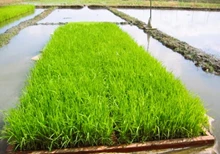
According to trade insiders, vegetables in the food basket is the only category that isn't bothering the government with prices at their lowest in the last 3 to 4 years. At wholesale marketplaces, practically all vegetables, including daily essentials like onions, tomatoes, and potatoes, cost between Rs.5 and Rs.20 per kilogram.
Vegetable production has increased significantly in key growing belts around Bangalore, Nashik, Indore, and other cities, since rain-related damages were minimal in these areas due to low rainfall in August. Vegetable demand has not yet rebounded to pre-Covid levels, and exports are particularly limited due to high air freight costs. However, with above-average rainfall expected in September, prices may rise at the end of the month if rains damage the standing crop.
"Prices of almost all vegetables are at their lowest levels not seen during the past 3-4 years. Production in main vegetable growing areas of Maharashtra, Karnataka and Madhya Pradesh is higher this year, while the rain-soaked veggies have a lower shelf life," said Green Vegetable Traders Association president Jai Kishan Saini from Azadpur mandi in New Delhi.
On Monday, the average price of bhindi/okra was Rs.6.25/kg in Surat, Rs.12.50/kg in Nashik, Rs 9.50/kg in Delhi, and Rs.20/kg in Mumbai, according to Agmarknet statistics. In Delhi, capsicum was sold for Rs.17/kg, whereas in Jodhpur, it was sold for Rs.12/kg. Cauliflower cost Rs.13/kg in Nashik, Rs.15/kg in Mumbai, and Rs.25/kg in Delhi. For more than a fortnight, tomato and potato prices have been low across the country.
Traders in Mumbai, the country's second large wholesale vegetable market, have similar stories about excess production. Rajesh Gupta of Mumbai-based GBS Trading said "The difference between export quality vegetables and those cultivated for the domestic market has shrunk from 30% to just over 5% as a result of increasing output. Exports of vegetables like as bhindi have decreased significantly due to high air freight”.
Traders also reported that a large shipment of vegetables destined for Bangladesh has come to a halt. Anish Shaikh, a small trader who buys chillies from Maharashtra's Aurangabad and Buldhana and transports them to Delhi or Kolkata, stated, "Traders engaged in export to Bangladesh claim that transportation costs, as well as other expenses like taxes, have rendered the trade unprofitable. A farmer pays a labourer Rs.5/kg for plucking chillies, but the amount he receives for his produce is between Rs.5 and Rs.10/kg. Everyone is recording huge losses."
One of the factors keeping vegetable prices down is increased transportation costs combined with increased production. According to Saini of Azadpur, the freight of a 15-tonne truck from Maharashtra to Delhi costs more than Rs.85,000, and the driver must be paid more than Rs.10,000 as an incentive to ensure that the truck arrives at the mandi as soon as possible because the rainy-season vegetable is highly perishable.
According to Dr. D Sreenivasa Murthy, principal scientist (agricultural economics) at the Indian Institute of Horticultural Research in Bangalore said favorable weather conditions are the primary reason for a 4% to 5% increase in vegetable production in the country.
Murthy said, "The monsoon arrived on time, while there was not much damage during the harvest period, which helped in increase in production. The area under the vegetable crops is also growing every year marking a shift from cereals to horticultural crops."











